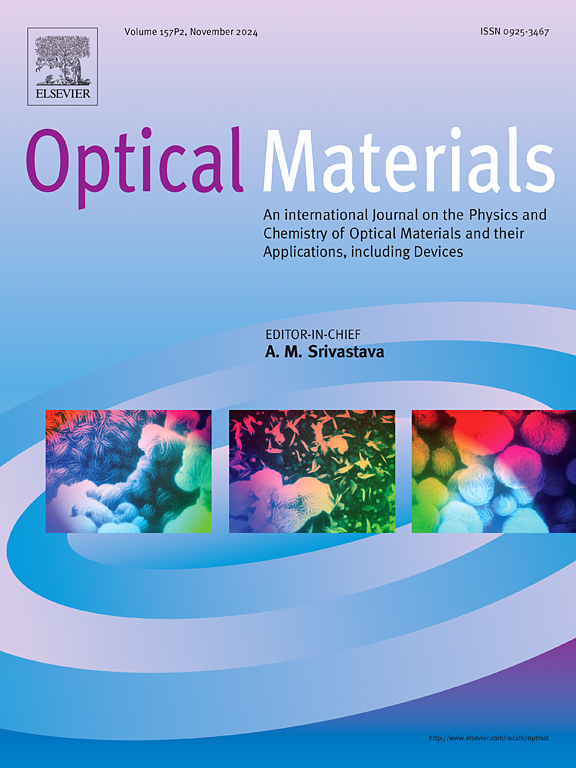揭示一种可见光驱动的掺锰氧化铜铋催化剂的合成方法,以增强染料降解:洞察影响降解的因素
IF 3.8
3区 材料科学
Q2 MATERIALS SCIENCE, MULTIDISCIPLINARY
引用次数: 0
摘要
近代以来,污水污染对水生生物和人类造成了极其有害的影响。由于有机污染物的存在,废水治理已成为科学家们面临的一项艰巨任务。在此,我们通过水热法合成了锰掺杂的氧化铜铋(Mn0.15Cu0.85Bi2O4),并利用它们成功地消除了复杂的污染物。在降解甲基紫(MV)时,对催化剂的可见光诱导光催化效能进行了评估。使用 CuBi2O4 时,甲基紫的降解率为 89.68%。然而,Mn0.15Cu0.85Bi2O4 的降解率在 36 分钟内上升到 99.18%。速率常数在 0.0627 至 0.1134 min-1 之间上升,证实了 Mn0.15Cu0.85Bi2O4 的有效性。Mn0.15Cu0.85Bi2O4 的有效性归功于其优异的表面积(51.97 m2/g),这源于 Mn 离子的整合。此外,研究不同反应变量的影响发现,这与 MV 染料的消除有很大关系。MV 退化的潜在原因可能是生成了-OH 和 O2--自由基,自由基捕获实验证实了这一点。生成的 Mn0.15Cu0.85Bi2O4 催化剂具有显著的光稳定性。最终,这项研究提出了一种既经济又实用的技术,用于制造有效的催化剂来处理废水。本文章由计算机程序翻译,如有差异,请以英文原文为准。
Uncovering the synthesis of a visible light-driven manganese-doped copper bismuth oxide catalyst for enhanced degradation of dye: Insights into the factors affecting the degradation
In recent times, effluent pollution has had an exceptionally detrimental effect on aquatic life as well as human beings. The management of wastewater has emerged as a formidable undertaking for scientists owing to the existence of organic contaminants. Herein, we synthesized the manganese-doped copper bismuth oxide (Mn0.15Cu0.85Bi2O4) through hydrothermal method and employed them for successfully eliminating complex pollutants. The assessment of the visible light-induced photocatalytic efficacy of the catalyst was performed for the degradation of methyl violet (MV). MV had a degradation of 89.68% when CuBi2O4 was used. However, the degrading rate of the Mn0.15Cu0.85Bi2O4 escalated to 99.18% in 36 min. The rate constant exhibited a rise between 0.0627 and 0.1134 min−1, confirming the effectiveness of the Mn0.15Cu0.85Bi2O4. The effectiveness of the Mn0.15Cu0.85Bi2O4 is due to its superior surface area (51.97 m2/g), which arises from the integration of Mn-ions. Additionally, examining the impact of different reaction variables revealed a substantial correlation with the elimination of MV dye. The potential reason for the deterioration of MV could be attributed to the generation of •OH and O2•− radicals, which was confirmed by radical trapping experiments. The photostability of the generated Mn0.15Cu0.85Bi2O4 catalyst exhibited remarkable characteristics. Ultimately, this study presents a technique for creating effective catalysts for treating wastewater that is both economical and practical.
求助全文
通过发布文献求助,成功后即可免费获取论文全文。
去求助
来源期刊

Optical Materials
工程技术-材料科学:综合
CiteScore
6.60
自引率
12.80%
发文量
1265
审稿时长
38 days
期刊介绍:
Optical Materials has an open access mirror journal Optical Materials: X, sharing the same aims and scope, editorial team, submission system and rigorous peer review.
The purpose of Optical Materials is to provide a means of communication and technology transfer between researchers who are interested in materials for potential device applications. The journal publishes original papers and review articles on the design, synthesis, characterisation and applications of optical materials.
OPTICAL MATERIALS focuses on:
• Optical Properties of Material Systems;
• The Materials Aspects of Optical Phenomena;
• The Materials Aspects of Devices and Applications.
Authors can submit separate research elements describing their data to Data in Brief and methods to Methods X.
 求助内容:
求助内容: 应助结果提醒方式:
应助结果提醒方式:


